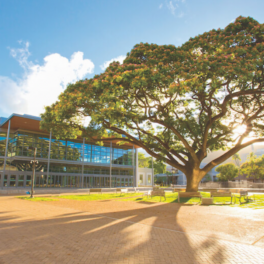Rapidly acidifying waters pose major threat for Southern Ocean ecosystem
 Pteropod mollusk found in north Pacific waters. Image courtesy of Alexander Semenov.
Pteropod mollusk found in north Pacific waters. Image courtesy of Alexander Semenov.As a result of increasing atmospheric carbon dioxide concentrations, the chemistry of the Southern Ocean is expected to change so fast over the next few decades that tiny creatures called pteropods at the base of the food web may soon struggle to form their shells. New research by scientists from the University of Hawaiʻi at Mānoa (UHM) and the University of Alaska, Fairbanks (UAF) finds that for some organisms the onset of such critical conditions will be so abrupt, and the duration of events so long, that adaption may become impossible.
The study, published in the journal Nature Climate Change, uses a number of Earth system models to explore how the uptake of human-induced carbon dioxide and the resulting ocean acidification will affect the Southern Ocean over the next century.
Lead author of the study Claudine Hauri is a chemical oceanographer at both the International Artic Research Center (IARC) at UAF and the International Pacific Research Center (IPRC); oceanography professor Axel Timmermann and climate scientist Tobias Friedrich, both at IPRC, are co-authors.
Read more about it and watch the video report in the UH System News and at The Sydney Morning Herald.



